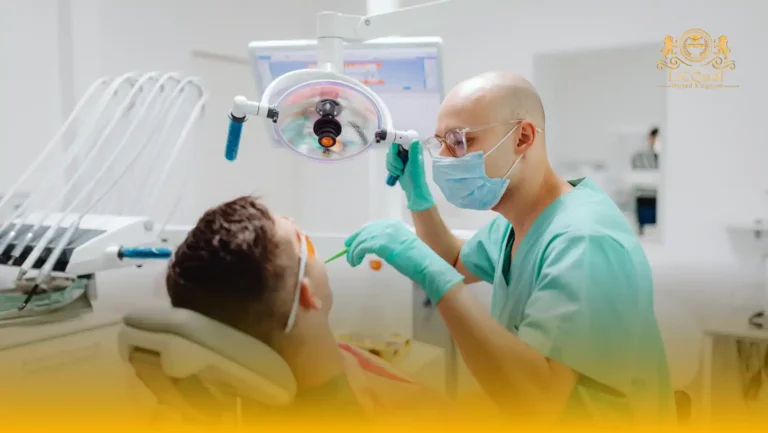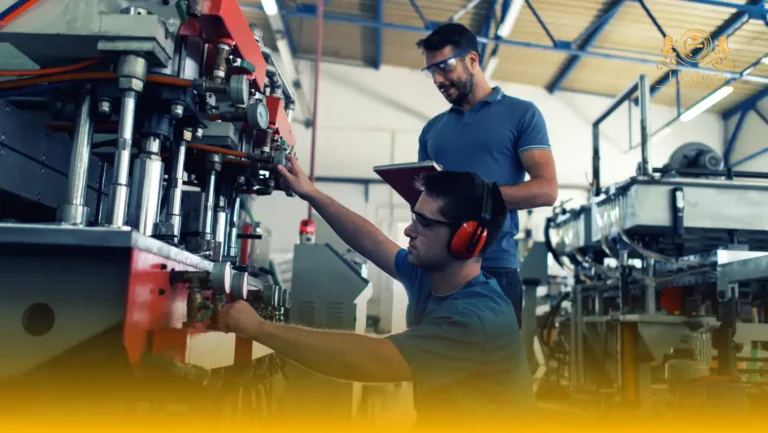The LICQual Level 3 Certificate in Forensic Medicine (Cert FM) is a specialist qualification designed for healthcare professionals and practitioners who are seeking to advance their knowledge and skills in the field of forensic medicine. Unlike general medical qualifications, this programme is not intended for fresh candidates but is aimed at experienced professionals who wish to enhance their career prospects, broaden their expertise, and strengthen their Continuing Professional Development (CPD).
Forensic medicine plays a vital role in bridging healthcare and the justice system, providing essential expertise in areas such as post-mortem examinations, medico-legal investigations, injury assessment, and the evaluation of medical evidence in legal contexts. This course equips learners with a comprehensive understanding of the principles and practices of forensic medicine, enabling them to contribute effectively to clinical, legal, and investigative processes.
Centres delivering the LICQual Level 3 Certificate in Forensic Medicine must demonstrate a strong commitment to quality and excellence. They are required to have competent and qualified teaching staff with relevant industry experience, alongside the provision of high-quality learning resources and facilities that ensure an engaging and professional learning environment. These measures are essential to support learner success and uphold the standards of this specialised qualification.
By completing this certificate, learners gain a competitive advantage in their professional field, deepening their expertise in medico-legal practice and opening pathways for progression into advanced roles within healthcare, forensic services, and related sectors.
Course Overview
Qualification Title
LICQual Level 3 Certificate in Forensic Medicine (Cert FM)
Total Units
6
Total Credits
24
GLH
120
Qualification #
LICQ2200847
Qualification Specification
To enroll in the LICQual Level 3 Certificate in Forensic Medicine (Cert FM) , applicants must meet the following criteria:
|
Qualification# |
Unit Title |
Credits |
GLH |
|---|---|---|---|
|
LICQ2200847-1 |
Principles of Forensic Medicine |
4 |
20 |
|
LICQ2200847-2 |
Medico-Legal Investigations and Procedures |
4 |
20 |
|
LICQ2200847-3 |
Forensic Pathology and Post-Mortem Examination |
4 |
20 |
|
LICQ2200847-4 |
Injury Assessment and Interpretation |
4 |
20 |
|
LICQ2200847-5 |
Ethical, Legal, and Professional Issues in Forensic Practice |
4 |
20 |
|
LICQ2200847-6 |
Forensic Evidence, Reporting, and Courtroom Skills |
4 |
20 |
By the end of this course, learners will be able to:
Unit 1: Principles of Forensic Medicine
Learning Outcomes:
- Understand the scope, purpose, and applications of forensic medicine.
- Explain the relationship between healthcare practice and the legal system.
- Recognise the importance of accurate documentation and professional conduct in forensic cases.
- Apply fundamental principles of forensic medicine to real-world scenarios.
Unit 2: Medico-Legal Investigations and Procedures
Learning Outcomes:
- Identify the key stages of medico-legal investigations.
- Demonstrate knowledge of evidence collection, preservation, and chain of custody.
- Apply standard medico-legal protocols to ensure accuracy and reliability in investigations.
- Evaluate the role of medical professionals in assisting legal processes.
Unit 3: Forensic Pathology and Post-Mortem Examination
Learning Outcomes:
- Understand the procedures and techniques used in forensic pathology.
- Describe the stages and purposes of post-mortem examinations.
- Interpret post-mortem findings to identify cause and manner of death.
- Apply safe and ethical practices in conducting or assisting with autopsies.
Unit 4: Injury Assessment and Interpretation
Learning Outcomes:
- Recognise and classify different types of injuries and wounds.
- Accurately document injuries for medico-legal purposes.
- Correlate injury patterns with possible causes and mechanisms.
- Apply forensic knowledge to distinguish between accidental, self-inflicted, and inflicted injuries.
Unit 5: Ethical, Legal, and Professional Issues in Forensic Practice
Learning Outcomes:
- Analyse ethical dilemmas commonly encountered in forensic medicine.
- Understand the legal responsibilities and professional duties of healthcare professionals in forensic contexts.
- Apply safeguarding policies and patient rights in medico-legal practice.
- Demonstrate accountability and professionalism when handling sensitive forensic cases.
Unit 6: Forensic Evidence, Reporting, and Courtroom Skills
Learning Outcomes:
- Demonstrate skills in handling, analysing, and presenting forensic evidence.
- Prepare accurate and comprehensive medico-legal reports.
- Develop effective courtroom communication and expert witness skills.
- Apply professional standards when presenting forensic findings in judicial proceedings.
The LICQual Level 3 Certificate in Forensic Medicine (Cert FM) is designed for healthcare professionals, medical students, and allied practitioners who want to specialize in medico‑legal practice and forensic investigation. This Level 3 Forensic Medicine certification is ideal for those aiming to strengthen their expertise in forensic pathology, injury interpretation, toxicology, and medico‑legal documentation. With its globally recognized qualification and CPD‑accredited training, this program is perfect for anyone seeking a career‑boosting certification in forensic medicine.
1. Doctors and Physicians in Clinical Practice
- Gain advanced knowledge in medico‑legal case management
- Strengthen credentials with a globally recognized certification
- Learn forensic pathology and injury interpretation techniques
- Improve medico‑legal reporting and courtroom testimony skills
- Boost career progression in hospitals, forensic units, and legal medicine
2. Registered Nurses and Emergency Care Staff
- Develop skills in documenting and reporting forensic evidence
- Earn a CPD‑accredited qualification to enhance career growth
- Gain confidence in handling medico‑legal cases in ER settings
- Learn international best practices in forensic nursing
- Increase employability in hospitals, trauma centers, and forensic care
3. Allied Health Professionals (Paramedics, Lab Technicians, etc.)
- Expand scope of practice with forensic medicine competencies
- Learn evidence collection and preservation techniques
- Improve patient safety and medico‑legal compliance
- Gain recognition with an industry‑approved qualification
- Enhance career mobility across healthcare and forensic sectors
4. Medical Students and Early‑Career Professionals
- Build a strong foundation in Forensic Medicine training
- Gain a competitive edge in postgraduate applications
- Learn practical medico‑legal skills alongside theoretical knowledge
- Demonstrate commitment to professional development
- Position yourself for future roles in forensic and legal medicine
5. Law Enforcement and Legal Professionals with Medical Interest
- Understand the medical aspects of forensic investigations
- Strengthen collaboration with healthcare professionals
- Learn medico‑legal documentation and injury analysis basics
- Gain insights into toxicology and forensic pathology
- Enhance credibility in medico‑legal and investigative roles
6. Public Health and Community Care Specialists
- Understand the role of forensic medicine in public health
- Learn strategies for medico‑legal reporting in community cases
- Strengthen skills in ethical and legal aspects of healthcare
- Support public health initiatives involving forensic evidence
- Enhance credibility in community and outreach roles
7. International Healthcare Professionals Seeking Recognition
- Earn a career‑boosting qualification recognized worldwide
- Align with global forensic medicine standards and protocols
- Improve employability in international hospitals and forensic labs
- Access flexible online learning suited to global professionals
- Demonstrate commitment to continuous professional growth
Centres intending to deliver this qualification must ensure that they meet high standards of quality and compliance to provide learners with the best possible training experience. The following requirements apply:
- Qualified and Experienced Staff: Centres must employ trainers, assessors, and internal verifiers with relevant qualifications and professional experience in forensic medicine, healthcare, and medico-legal practice.
- Access to Learning Resources: Learners should have access to high-quality and up-to-date study materials, textbooks, case studies, and digital resources to support their academic and professional development.
- Appropriate Training Facilities: Delivery must take place in a professional learning environment, such as classrooms, clinical training rooms, or simulated forensic settings that encourage interactive and practical learning.
- Assessment and Quality Assurance: Centres must have robust systems for assessment, internal verification, and record-keeping to ensure the integrity, fairness, and consistency of learner outcomes.
- Learner Support Services: Adequate academic guidance, mentoring, and pastoral support must be provided to help learners successfully complete their qualification.
- Commitment to CPD: All teaching and assessment staff must demonstrate ongoing Continuing Professional Development (CPD) to remain current in forensic medicine and healthcare practices.
- Compliance with International Standards: Centres must adhere to LICQual’s policies, procedures, and quality assurance frameworks, ensuring training delivery meets international standards for vocational and professional education.
By fulfilling these requirements, centres can deliver the LICQual Level 3 Certificate in Forensic Medicine (Cert FM) to a high standard, ensuring learner success and maintaining the credibility of this specialist qualification.
Assessment and Verification
All units within this qualification are subject to internal assessment by the approved centre and external verification by LICQual. The qualification follows a criterion-referenced assessment approach, ensuring that learners meet all specified learning outcomes.
To achieve a ‘Pass’ in any unit, learners must provide valid, sufficient, and authentic evidence demonstrating their attainment of all learning outcomes and compliance with the prescribed assessment criteria. The Assessor is responsible for evaluating the evidence and determining whether the learner has successfully met the required standards.
Assessors must maintain a clear and comprehensive audit trail, documenting the basis for their assessment decisions to ensure transparency, consistency, and compliance with quality assurance requirements.







